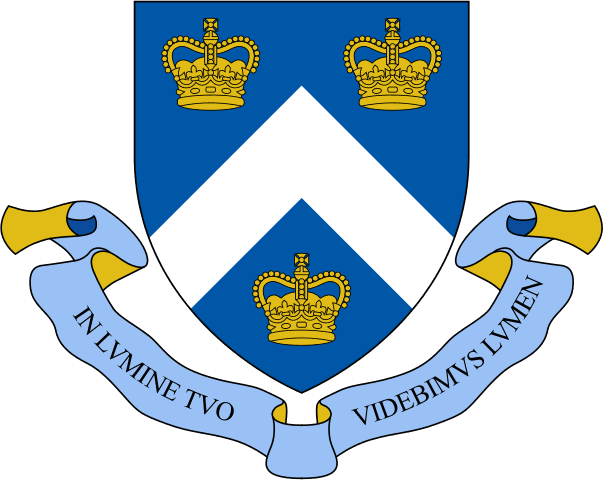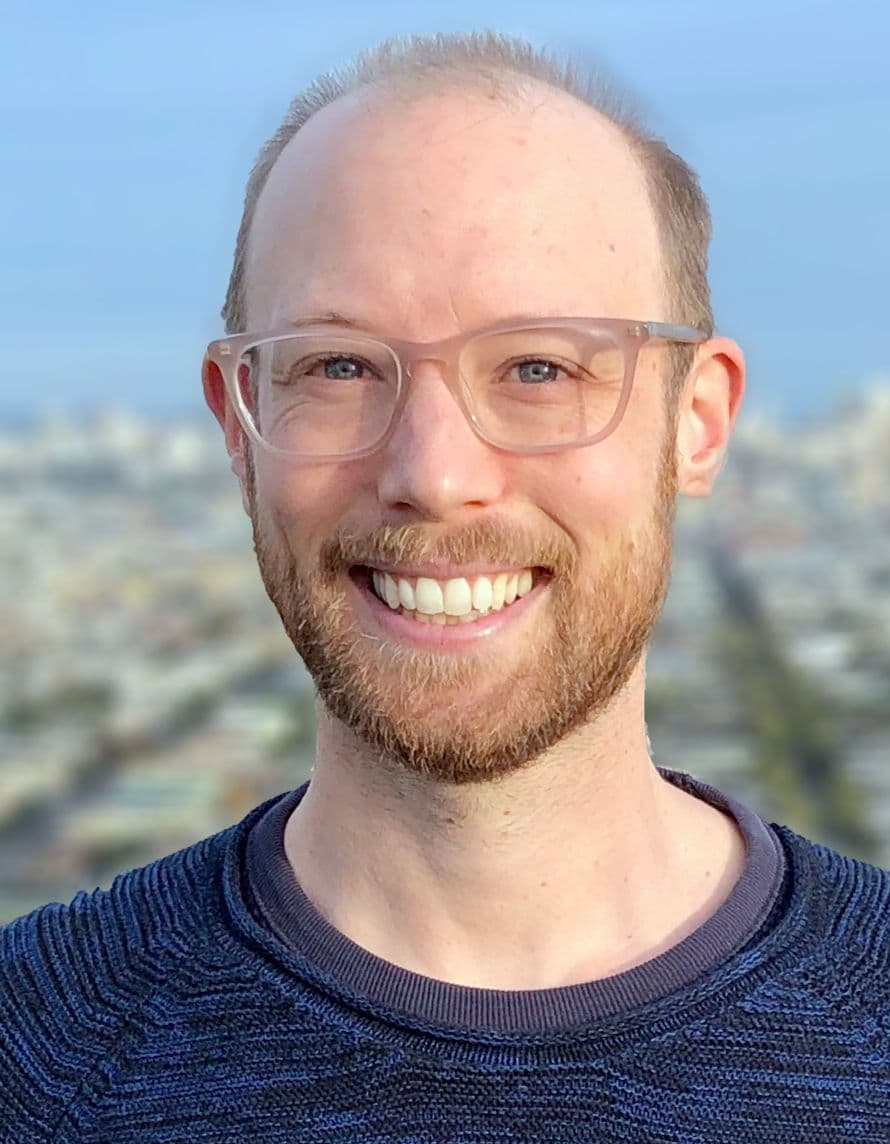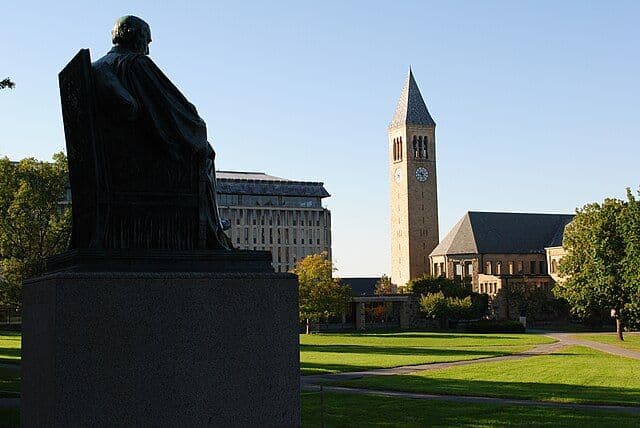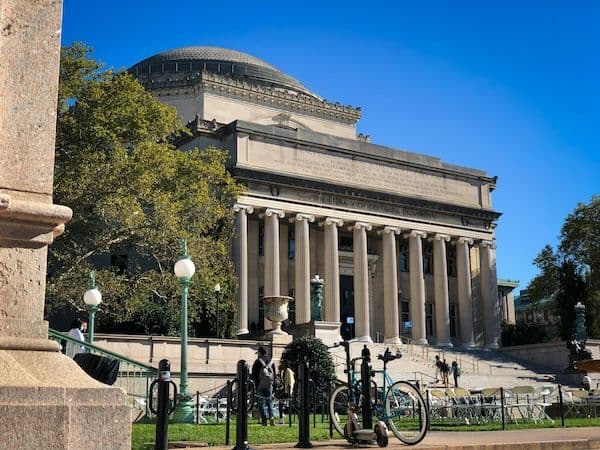
The Value of a Columbia University Education
Driven students often enter college with a clear path - only to have the college experience change their perception of what they want. Join us for an interview-style blog with a Columbia alum who shares how the university changed his path and the value it’s added to his life.

By DraftSaturn, CC BY 4.0
Many Ivy Tutors Network students are interested in - or fully committed to - an Ivy League education. To facilitate each student’s exploration of the right school fit, we’re doing a series of blogs looking at how to get into each of the eight schools, and pairing them with an interview from an alumnus of that school. We plan to explore other Top 25 schools and HBCUs next. If what you’re hearing sparks interest, we encourage you to speak with your guidance counselor or one of our college admissions counselors to work on an admissions strategy.
Find the partner piece, How to Get Into Columbia: Secrets to Standing Out in Admissions, here.
Interview with Christian González-Rivera: Reflections on Columbia University
Justin Taylor: Were there any professors, courses, or resources at Columbia that really impacted your professional development?
Christian González-Rivera: Well, I had a bit of a winding path before settling on my major, but once I did, it really defined the rest of my career—which now spans over 20 years. I actually started Columbia with a double major in biochemistry and German. I had been studying German and wanted to continue, so I figured I might as well major—or maybe minor—in it. That was my freshman-year thinking.
Coming into college, I thought I was going to be a scientist. I was really into science as a teenager—I had a laboratory in the basement, and my dad even bought me real lab equipment from Fisher Scientific. I ran all kinds of experiments and genuinely believed that was my path.
But college was a major eye-opener. I realized how sheltered I’d been by my parents. For example, I don’t think I’d ever met anyone who had gone to a private school before I got to Columbia. I thought I’d read a lot of books growing up, but suddenly I was surrounded by classmates who had read all those same books—and more—as part of their high school curriculum. These were the “great books” of the Greeks and others that I was only encountering for the first time.
It felt like walking into a much larger room. The set of choices I thought defined my future suddenly seemed much smaller when placed in a broader context. Being at Columbia diluted that certainty and made me realize that I needed to question what I really wanted.
So at 17 or 18, I was confused. I had entered college thinking I had it all figured out, and I realized pretty quickly that I didn’t.
Justin Taylor: Was there a moment when you knew you had to change course?
Christian González-Rivera: I used to wander around the Columbia campus at all hours. People who went there know there’s a system of underground tunnels that connects many of the buildings. They were a lot more accessible before 9/11—I don’t know how they are now—but back then I’d sneak through them at night.
One night around midnight, I found myself in the Chemistry Building. I remember seeing all these grad students still working in their labs. I watched them through the glass—just observing them doing what they did—and I realized: this was the life I had imagined for myself. But something about seeing it up close made me question everything.
There was a kind of weight to it, a seriousness. I looked at their faces, the work they were doing, and I thought, “Is this actually what I want?” And in that quiet moment, something shifted. I realized: no, it wasn’t. That life no longer felt like mine.
By that point, I was halfway through my sophomore year. And you know how it is at Columbia—everyone’s essentially double-majoring between the core curriculum and their actual major—so I was worried I wouldn’t be able to change direction. But I talked to a guidance counselor, then to the head of the department, and I worked it out.
That’s when I formally made the shift into urban studies.
Justin Taylor: Were there other moments that helped you feel like you were in the right place?
Christian González-Rivera: One of my urban studies professors did this amazing thing every year: he took his students on a bike ride through New York City in the middle of the night.
We started at Columbia and rode through Times Square—right through the middle of it. Then we continued all the way downtown to the Fulton Fish Market, back when it was still actually located on Fulton Street. It was around 3 a.m.—peak activity at the market. I remember the intensity of it: trucks, fishmongers, noise, lights. It was alive.
We crossed one of the bridges—I don’t remember if it was the Brooklyn or the Williamsburg—but it was the kind of night that sticks with you. Every urban planning student who took that class knew about this ride. We all did it. It was a rite of passage.
That experience helped me see the city differently. Not just as a place to study from a distance, but as something tactile, inhabited, layered. That night brought the abstract concepts we were studying—zoning, public space, urban flow—into lived reality.
Justin Taylor: What kinds of support did you have—or not have—at Columbia?
Christian González-Rivera: There was a point where I thought my parents were going to cut me off financially. I really believed I was going to be homeless, have to drop out of school—just spiral. It was terrifying.
I went to Columbia’s psychological services and explained what was going on. They told me, “You can actually become an independent student. You don’t have to drop out.” That was one of the few times I really felt supported by the institution. It was a turning point.
Up until then, I always had the sense that if something went wrong, I could fall back on my parents. But when that crutch was taken away, I discovered I could stand on my own. I worked between a quarter- and half-time all through college. My first job was as an administrative assistant, and then I became the assistant to the managing editor of a scholarly journal published out of the Department of Spanish and Portuguese.
I remember holding one of the issues I worked on and thinking: I’m already supporting myself. Sure, the money didn’t always stretch to the end of the month, but I was figuring things out. I was doing it.
That realization—that I could survive and even do well on my own—was more profound than any single class. That’s what Columbia gave me: not just academic tools, but the circumstances that forced me to realize I could take care of myself.
Justin Taylor: You also went to NYU for grad school and now you teach at Hunter. Do you feel like Columbia stands out in any particular way when compared to those other schools—in terms of the culture, the teaching, or the students?
Christian González-Rivera: Yeah, I think Columbia really does stand out. The students there were deeply curious and analytical in a way I haven’t always encountered elsewhere.
When I was younger—in high school, middle school, even elementary school—I was always one of the “smart kids,” the ones at the top of the class. But when I got to Columbia, that didn’t mean anything anymore. Everyone there had been that person in their hometown. Suddenly, I was surrounded by people who had all been academic stars, and that was humbling.
It pushed me. It made me rethink what I thought I knew. And it also made me realize that intelligence shows up in many different forms. Columbia was full of people who approached learning with this intensity, this hunger. That created a very particular kind of academic environment—one I haven’t really seen elsewhere in the same way.
Justin Taylor: Do you think your Columbia degree opened doors for you professionally?
Christian González-Rivera: Maybe. I honestly don’t know. I’ve worked with people from all sorts of academic backgrounds—state schools, community colleges, international universities. I’ve never worked in a place like a corporate law firm or a hedge fund where everyone went to an Ivy. So I don’t think the degree was a golden ticket. But it probably helped in ways I couldn’t see—maybe on a résumé, or maybe just in the credibility it gives people when they first meet you.
That said, the people I’m most excited by—the ones I build community with—aren’t the people from my alumni events or LinkedIn network. They’re artists, activists, queerdos, people living creatively. Some of them went to Ivy League schools, many didn’t. And honestly, I find that way more interesting than prestige.
Justin Taylor: Looking back, is there anything you wish you’d had more of during your time there?
Christian González-Rivera: I do wish I’d had more guidance at Columbia. I wish someone had really taken me under their wing. It seems like the kind of place that should’ve had wise people who could do that—and I’m sure they were there—but I didn’t know how to find them, and they didn’t find me.
There was so much richness at Columbia, and some of it definitely washed over me. But a lot of it I missed. That’s not a complaint so much as an acknowledgment: I got what I could, but I also wish I’d known how to get more.
Interviewee Bio
Christian González-Rivera is the director of strategic policy initiatives at the Brookdale Center for Healthy Aging. His work is to translate results and findings from Brookdale's academic research and demonstration projects into policy and practice, create strategic partnerships across institutions and organizations, and help formulate and communicate Brookdale’s policy priorities.
Ready to start your own college admissions journey and find the right schools for you? Set up a free consultation today.




